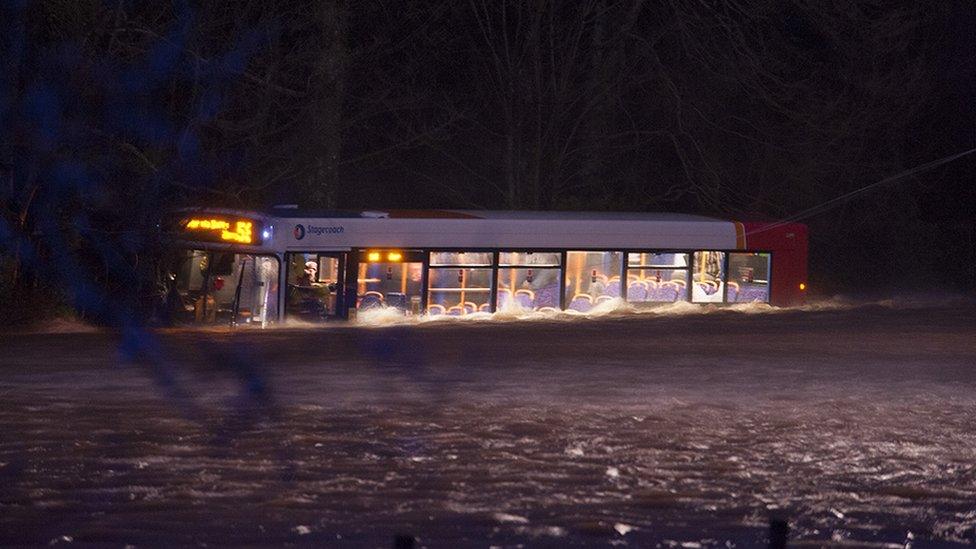First Minister Nicola Sturgeon visits areas hit by floods
- Published
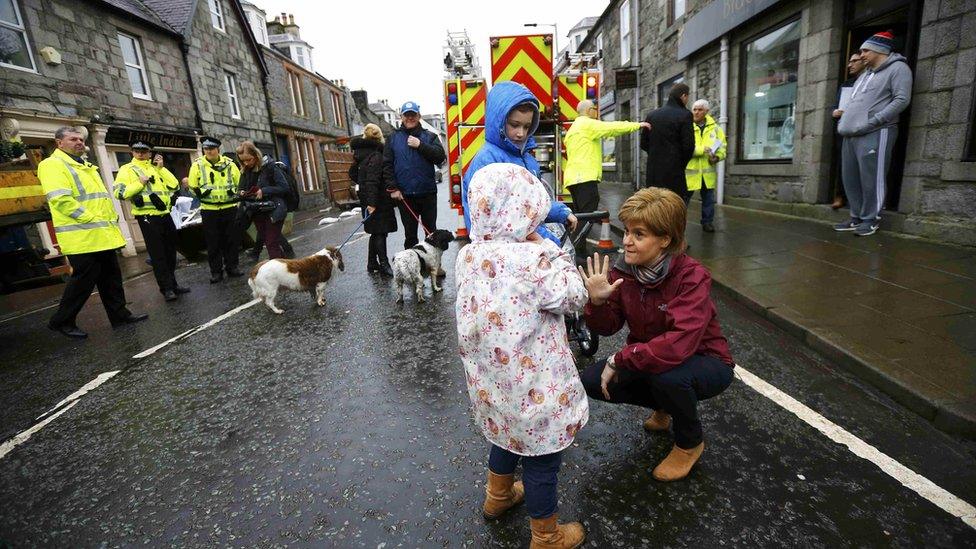
Nicola Sturgeon met people affected by the floods in Newton Stewart
The first minister has visited parts of the south of Scotland hit by floods on Wednesday following Storm Frank.
Nicola Sturgeon viewed the damage in Newton Stewart, while Prince Charles and the Duchess of Rothesay visited flood victims in Aberdeenshire.
Hundreds of people spent the night in temporary accommodation after the storm caused major flooding and transport disruption across Scotland.
The body of a kayaker in his 50s has been found in the River Findhorn.
He went missing on the stretch of water in Moray on Wednesday.
Ms Sturgeon said the impact of the flooding on people's lives had been "devastating".
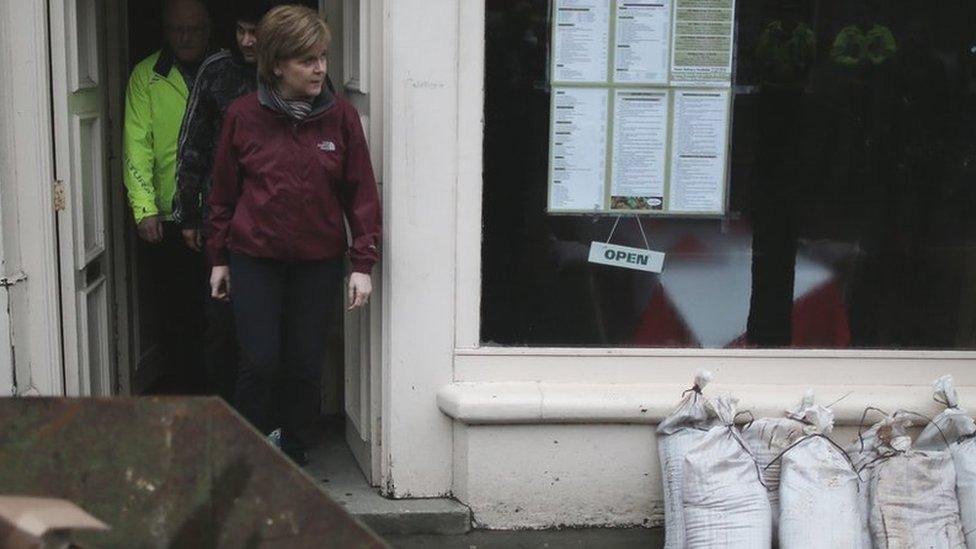
She added: "On the other side of that, the response has been heroic.
"Emergency services, volunteers, members of the public, the council, working together. There's a sense here of real community spirit.
"But there's a long recovery road ahead for some of the people I've been speaking to.
"One of the reasons I'm here is so that I can see it for myself, so we can make sure we are doing everything we reasonably can to help people with that recovery."
Prince Charles and Camilla were said to have made a "spur of the moment" visit to a soup kitchen and barracks in Ballater.
About 200 properties in the village were affected by floods.
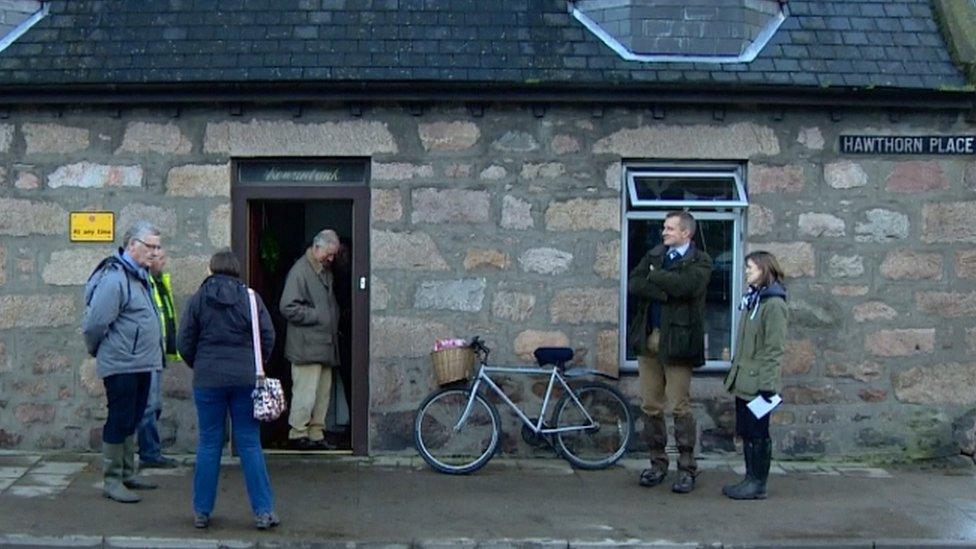
Prince Charles visited locals in Ballater, near the Balmoral Estate
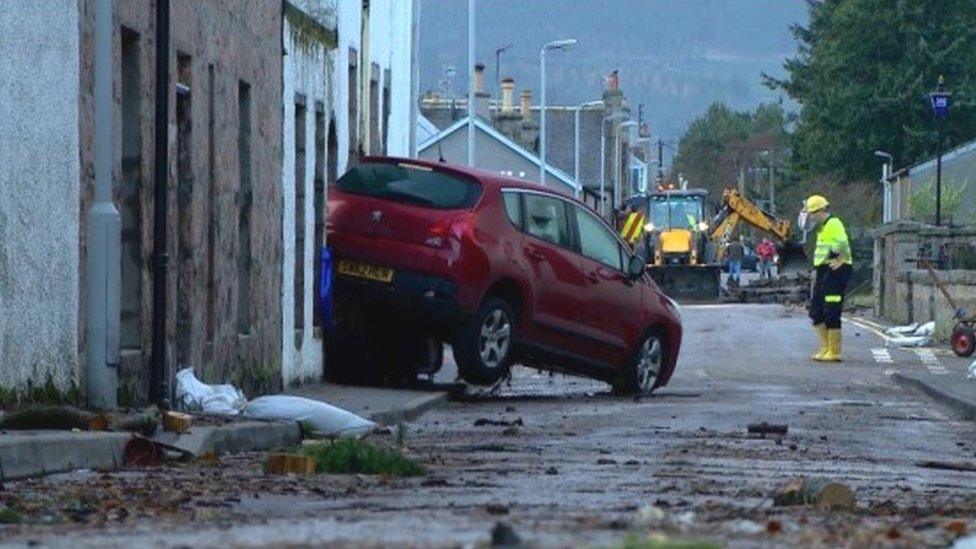
A clean-up operation is under way in Ballater
Streets in Aberdeen and Brechin were among those evacuated late on Wednesday as river levels rose.
The A83 at the Rest and Be Thankful is now open following a landslide. Drivers had been forced to take a 50-mile diversion after 200-300 tonnes of debris crashed onto the road.
Forecasters said more rain was due on Thursday but it would be far lighter.
At the height of the storm, the Scottish Environment Protection Agency issued two severe flood warnings, for Whitesands in Dumfries and the Tweed in Peebles, which have now been lifted.
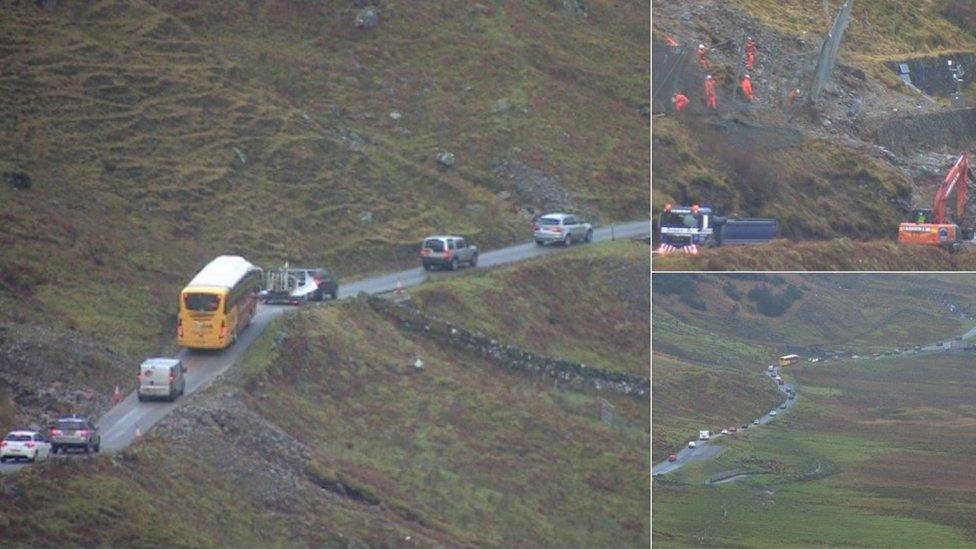
The A83 at the Rest and Be Thankful is now open following a landslide
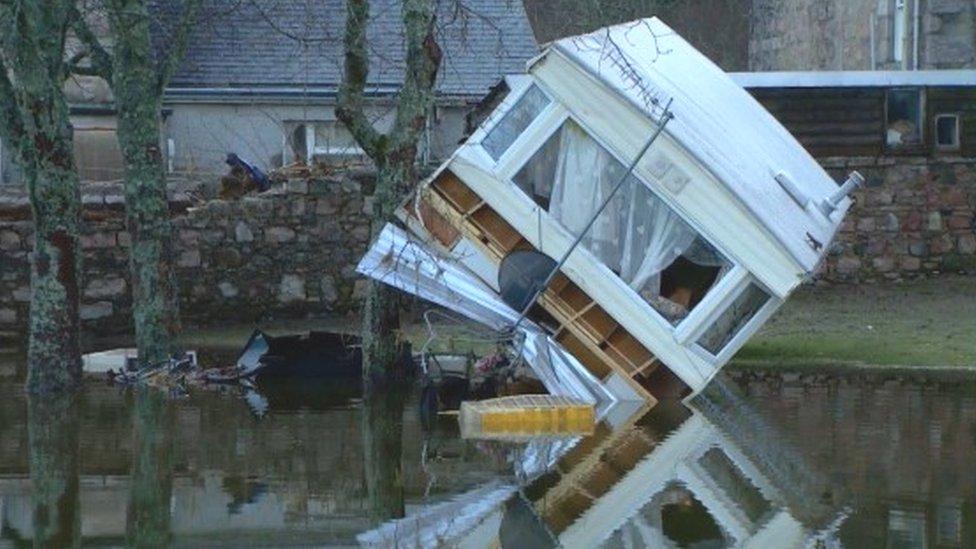
Flooding caused extensive damage in Ballater
At the height of the storm, the Scottish Environment Protection Agency issued two severe flood warnings, for Whitesands in Dumfries and the Tweed in Peebles, which have now been lifted.
A Muslim charity team from Blackburn, Lancashire, which normally responds to international disasters, has arrived in Dumfries to offer assistance.
A spokesman said they had been "heartbroken" when they had learned of the impact of the storm on Scottish communities.
All First TransPennine Express train services from Carlisle to Glasgow and Edinburgh were cancelled after a viaduct north of Carlisle was seriously damaged in the storm.
Footage showed a mobile home smashing into a bridge on the River Dee in Ballater, Aberdeenshire
Scottish Hydro said its engineers had restored electricity supplies to most customers in Ballater and the surrounding area by Thursday evening.
However, the company said the power would have to remain off for the worst affected properties pending safety inspections.
A spokesperson said: "The water level has to fall sufficiently for our engineers to carry out a safety survey of our electrical equipment that is needed to deliver power to a property.
"Only after this survey, can repairs be carried out."
The Scottish government's emergency committee has been meeting regularly to help co-ordinate its response to the flooding crisis.
Environment Minister Aileen McLeod told BBC Scotland government was making as much money available as it could for the clean-up and recovery.
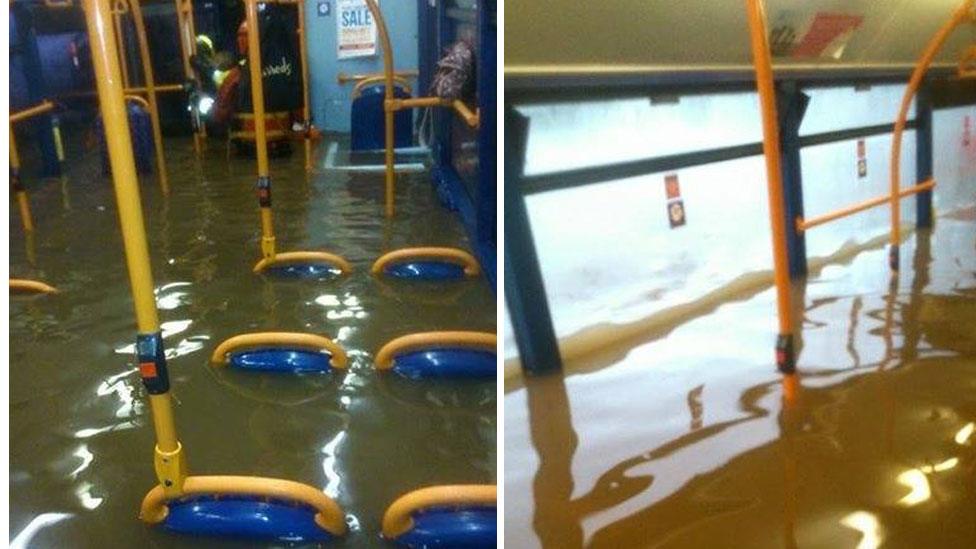
Twelve people had to be rescued from a bus after it filled up with water at Dailly in South Ayrshire
She said: "The deputy first minister has activated the Bellwin Scheme, which provides support to local authorities to assist with immediate and unforeseen costs of dealing with the latest flood damage.
"Obviously, we are committed to helping communities get back on their feet as quickly as possible.
"The deputy first minister also announced in his draft budget for 2016/17 an additional £4m for the local authorities that were hit by the storms and flooding earlier this year."
Sepa's duty hydrology manager Pascal Lardet said the impact of recent rainfall on river systems across the country had been "truly extraordinary", resulting in "record water levels".
He said: "We estimate it may be the highest river level on the Dee since 1928.
"It's the record on the Cree for water level in Newton Stewart, Dumfries and Galloway, since 1963."
Some flood warnings were lifted late on Wednesday but rising water levels in the north east, especially on the River Dee, forced more evacuations.
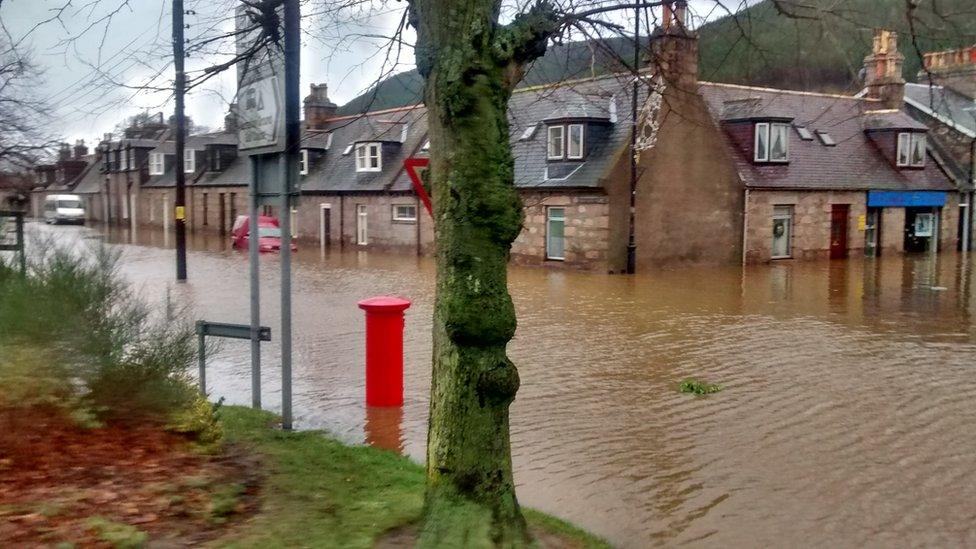
Two hundred properties were hit by flooding in Ballater on Wednesday (above). But the flooding had subsided by Thursday morning (below)
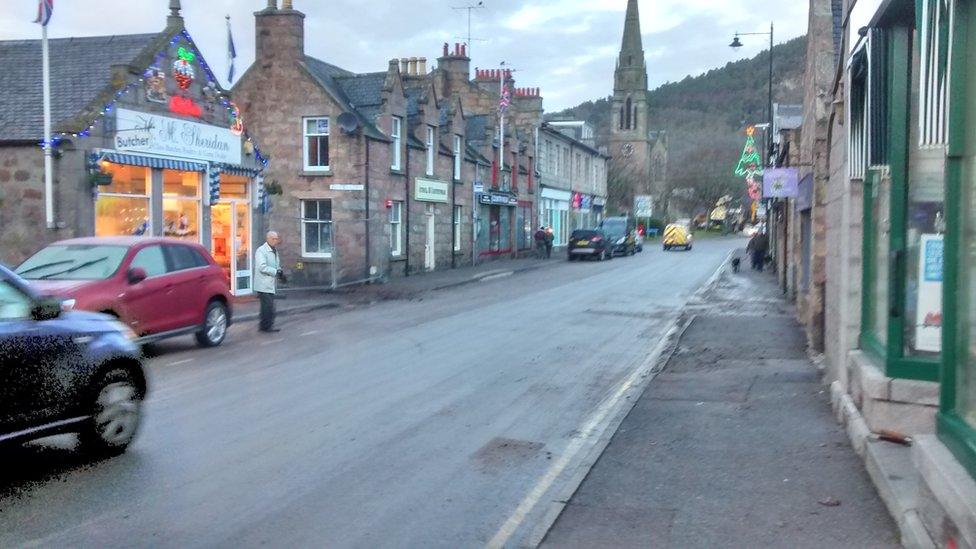
In Aberdeen, residents were forced to leave their homes in Riverside Drive.
Homes in River Street in Brechin were also evacuated.
Drivers were shocked to see part of the A93 west of Ballater collapse into the water as they drove along it.
More than 100 people spent the night at Victoria Barracks in Ballater after being evacuated from their homes.
Millie Begg told BBC Scotland she was "relieved but shocked" to be carried into a police boat after officers had gone into her loft to retrieve her cat box.
Flood damage to the A93 west of Ballater
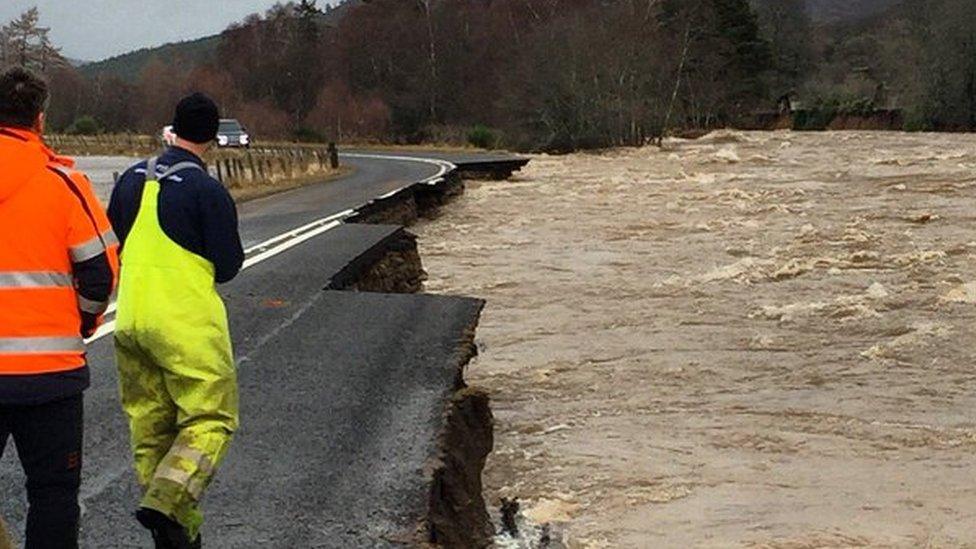
Part of the A93 west of Ballater collapsed into the water
Referring to the flood waters, she said: "I've never seen anything come so quickly. It was just a torrent."
Aberdeenshire Council said many of those affected were able to stay with friends or relatives but about 100 were spending the night at the barracks.
In Aberdeen, the Norwood Hall hotel was used as rest centre for people forced from their homes.
The Aberdeen coastguard rescue team said it had helped to evacuate a care home.
Ch Insp Richard Craig, of Police Scotland, said: "We would like to remind the public to avoid affected areas and to obey road closure signs. The roads are closed for a good reason and failure to obey these closures put you and emergency services at unnecessary risk.
"Members of the public should also avoid walking in flood water, no matter how shallow, as many man-hole covers have lifted and the water may be contaminated.
"Local authorities have sandbags available for residents whose properties are affected by flood water."
In the Borders, dozens of firefighters rescued 25 people from a Peebles nursing home on Wednesday.
Emergency services were called just after 15:00 to the home in Tweed Green on the banks of the Tweed, and the evacuation was competed at 00:16 on Thursday.
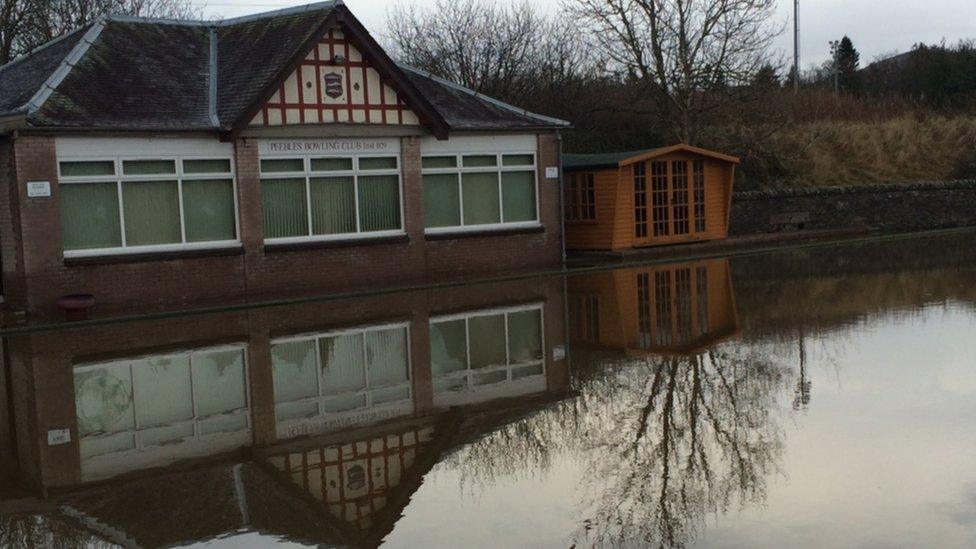
Peebles Bowling Club was left under water
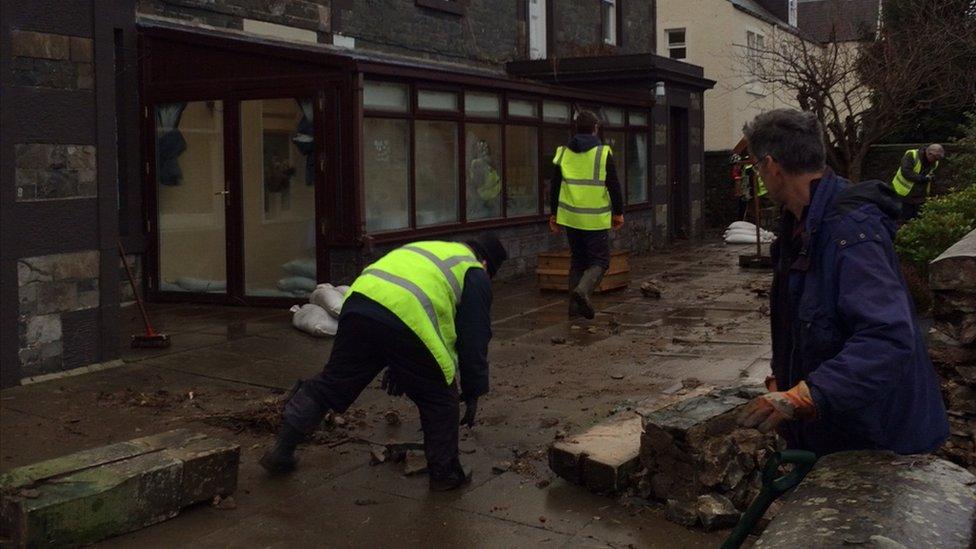
Repair work begins at the Peebles nursing home which had to be evacuated
Dumfriesshire MSP Elaine Murray said the clean-up work would really start when the water levels dropped.
She said: "If people can lend a hand, with their rubber gloves on and their wellies on and their brush to help clean up, I think that would be much appreciated by the people who have been affected.
Efforts were also due to be made to recover a Stagecoach bus which became stranded in deep water at Dailly in South Ayrshire.
Twelve people, including two children, were rescued from the bus. Ten were airlifted by a Royal Navy helicopter from the vehicle while a further two people were taken off the bus by boat.
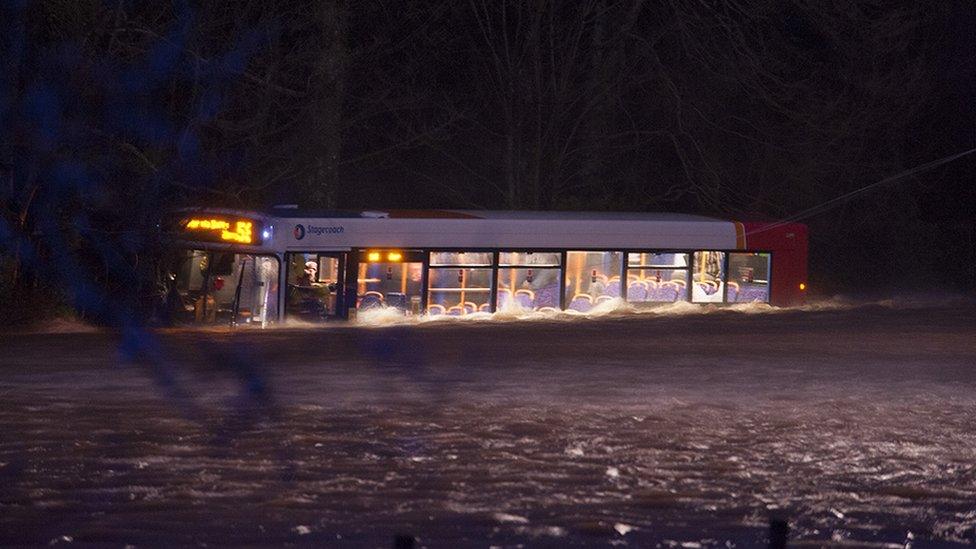
Twelve people including two children were rescued from a Stagecoach bus that became stranded at Dailly in South Ayrshire
Phyllis Young, who was on a bus which was evacuated amid the flooding, described the ordeal
The four men, six women, a seven-year-old boy and a five-year-old girl were taken to a local community centre to be assessed by medical staff.
Phyllis Young was on board the bus when it got into difficulty, and told BBC Scotland: "The water came in the bus, it came up and up and got to the windows and was just like big waves.
"You could see the current - it was very, very scary.
"We moved up to the back of the bus because the seats were higher. I actually sat on the ledge at the back. Some people were standing on the seat grab bars.
My feet and legs were in the water the whole time. The whole of the front lower section of the bus was completely covered with water."
A Stagecoach spokeswoman said the road was open to traffic at the time the bus was making the journey from Girvan to Ayr.
- Published31 December 2015
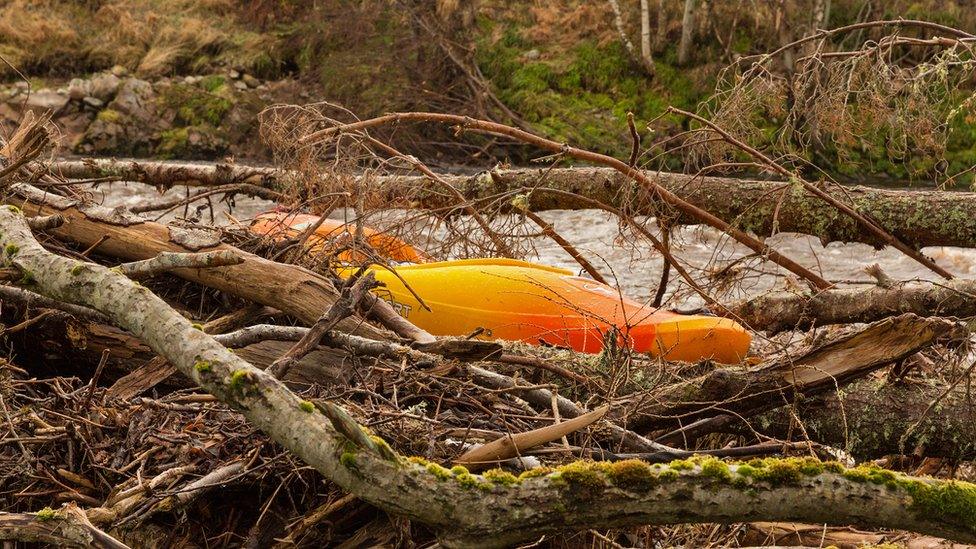
- Published30 December 2015
